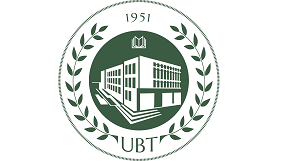KALTRINA JUSUFI, MAJLINDA VASJARI, BARDHA KORÇA
University of Prishtina “HasanPrishtina”, Faculty of Natural Sciences and Mathematics, Department of Chemistry, str. “NënaTereze” nr.5, 10000 Prishtina, Kosovo.
University of Tirana, Department of Chemistry, Faculty of Natural Sciences, Tirana, Albania
*Corresponding author; E-mail: kaltrina.jusufi@uni-pr.edu
|
Abstract Life as we know it today would have been very different without electricity. However, in its present form it has proved to be challenging for the environment and more “expensive” once fossil fuels began to be used as sources for electricity production. Power plants that use coal for electricity generation can emit an enormous pollution whose consequences humans and other living organisms can suffer from. According to the Food and Agriculture Organization of the United Nations, production of potatoes in 2013 was about 368 million tons, while for cabbage in 2011 was almost 69 million metric tons. The country of study of this paper, Kosovo, is known for cultivation of potatoes and cabbages for domestic and regional supply. For our study we collected the potato and cabbage samples growing in farmland areas around Kosovo’s power plants. Food samples were first dried at room temperature, milled and treated in the microwave system with nitric acid and hydrogen peroxide. Measurements of heavy metals were done using ICP-OES technique. From the results obtained we conclude that we are dealing with an average contamination from the areas where the ashes and wastes of power plants of Kosova are deposited. Keywords: heavy metals, potatoes, ICP/OES |

